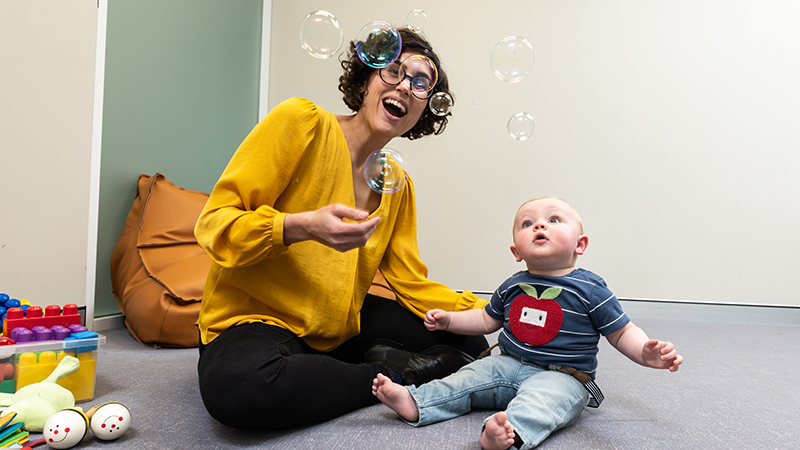Search

A child-led therapy that supports the social development of babies showing early signs of autism has found a significant reduction in social communication difficulties in babies who received the therapy, according to new research led by CliniKids at The Kids Research Institute Australia.
Emerging research suggests that seeking an autism diagnosis as an adult is usually difficult and time-consuming but brings relief once a diagnosis is made. This study explored the experience of the pathway to an autism diagnosis during adulthood for adults living in Australia.
Child temperament and caregiver psychological distress have been independently associated with social-emotional difficulties among individuals with autism. However, the interrelationship among these risk factors has rarely been investigated.
Preeclampsia is a pregnancy disorder characterized by hypertension. Epidemiological studies have associated preeclampsia with an increased risk of neurodevelopmental disorders in offspring, such as autism and schizophrenia. Preeclampsia has also been linked with maternal vitamin D deficiency, another candidate risk factor also associated with autism.
The provision of timely, effective, and socially valid non-pharmacological intervention is at the core of efforts to support the development of young autistic children. These efforts are intended to support children to develop skills, empower their caregivers, and lay the foundation for optimal choice, independence, and quality of life into adulthood.
Andrew Videos Whitehouse Watch and listen to Andrew PhD Deputy Director (Research); Angela Wright Bennett Professor of Autism Research at The Kids
Little is known about parent preferences regarding delivery methods of early interventions. This research examined, through parent report, the current and preferred delivery methods of seven common educational early interventions accessed by New Zealand children with autism spectrum disorder.
It is biologically plausible that risk of autism spectrum disorder (ASD) is elevated by both short and long interpregnancy intervals (IPI). We conducted a retrospective cohort study of singleton, non-nulliparous live births.
Naturalistic developmental behavioural interventions are promising approaches for young children with, or suspected of having, autism spectrum disorder. Joint attention, symbolic play, engagement and regulation intervention (JASPER) is a well-researched naturalistic developmental behavioural intervention but, to date, no reviews have specifically evaluated its effects.
There are no well-established biomedical treatments for the core symptoms of autism spectrum disorder (ASD). A small number of studies suggest that repetitive transcranial magnetic stimulation (rTMS), a non-invasive brain stimulation technique, may improve clinical and cognitive outcomes in ASD.
